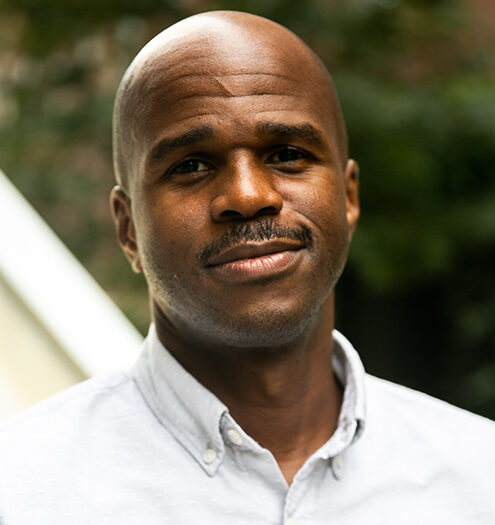Buying Black on Black Friday and during the holidays isn’t just good business, it’s a moral imperative
OPINION: Black businesses have been hit hard. They deserve to be set up for success during and beyond this turbulent time.
Public health issues and systemic societal problems continue to wreak havoc in Black communities. Even as circumstances have steadily improved since mass lockdowns were lifted, Black businesses, on the whole, continue to face an unequal path to recovery.
It’s an issue that’s rooted in the persistent racial wealth gap, which has plagued Black business owners for years, as their White counterparts have disproportionately more access to money and opportunity. Even before these uncertain times, Black businesses faced more of an uphill battle to stay afloat.
The 2021 holiday season could be one of our best chances yet to help turn that trend around. It can start with individuals and businesses buying Black on Black Friday and throughout December. But not only that — it’s time to get serious about supporting Black business owners throughout the year.

According to the National Retail Federation, nearly 2 million more people than last year are expected to shop from Thanksgiving Day through Cyber Monday this year, even as consumers have continued the trend of starting their holiday shopping earlier in the year. It’s primetime for retailers, but also for many entrepreneurs and small businesses hoping for a vital boost to their sales figures for the year. Establishments in the Black community deserve to have a bigger piece of the pie, because their very existence could depend on whether they reap the benefits of holiday spending.
Approximately 80% of Black-owned businesses fail within the first 18 months, according to a report from CNBC, even as 20% of all small businesses fail within the first year. That figure gets worse as time goes on. Amid the fallout from the coronavirus, Black-owned businesses declined by 41% between February and April 2020, compared with a 17% decline among White-owned businesses, based on data from the National Bureau of Economic Research.
But following the summer of 2020, public interest for supporting Black businesses soared. A survey by Groupon and the National Black Chamber of Commerce found that around 75% of Black-owned small businesses experienced an increase in customers between June and August 2020. Searches for Black-owned businesses on Groupon increased by more than 300% in that time.
But after the surge, CNBC noted, sales at many Black-owned businesses plummeted back to their previous rates. It was unacceptable then, and it’s unacceptable now.
Fortunately, there’s some room for hope. An August 2021 survey of Black businesses showed that 8 in 10 said their businesses were better off than compared to one year prior, but that the situation wasn’t all sunshine and rainbows. More than half of the businesses surveyed noted that the environment for Black business owners remains challenging because of capital investment, access to credit and governmental resources, building a support network, and hiring enough staff.
Consumers of all races can do their small, yet collectively impactful part to turn the tide by seeking out Black businesses to shop with during the holiday season this year and year-round. Organizations like Official Black Wall Street maintain a directory of Black-owned businesses that can be easily searched across the goods and services they offer, as well as their respective locations.

It’s not only on would-be individual customers, but also on existing businesses and corporations to set Black entrepreneurs up for success. Some of that work is already underway, but more companies need to step up.
For example, American Express has partnered with the U.S. Black Chambers, Inc. to expand their ByBlack initiative with the launch of what’s described as the first national certification program exclusively for Black-ownership designation.
At Foot Locker, Inc. we’ve been intentional about buying from Black designers, spending money to advertise the brands, and mentoring the business owners. The designers are part of communities that have pioneered and driven the creativity behind sneaker culture and streetwear, including creatives like Don C and Melissa Mitchell. It’s part of a $200 million commitment to support the Black community through education and economic development, including investment in venture capital firms and Black-led community organizations.
The holidays present the perfect opportunity to commit to supporting Black-owned businesses during the joyous observances, and throughout the year. Ensuring that Black businesses thrive can help close the racial wealth gap. It can lead to increased job creation in Black communities. And it can help create an environment where racial and economic justice become a reality. Black consumers can play a part, but ultimately, it’s on the community’s self-avowed allies and companies that accept Black dollars to ensure they’re pouring back into Black communities.

Patrick Walsh is the Vice President, Growth and Commercial Development at Foot Locker, Inc. As a part of the Commercial Leadership team, Patrick acts as a strategist and advisor to the global commercial business.
Have you subscribed to the Grio podcasts, ‘Dear Culture’ or Acting Up? Download our newest episodes now!
TheGrio is now on Apple TV, Amazon Fire, and Roku. Download theGrio today!


